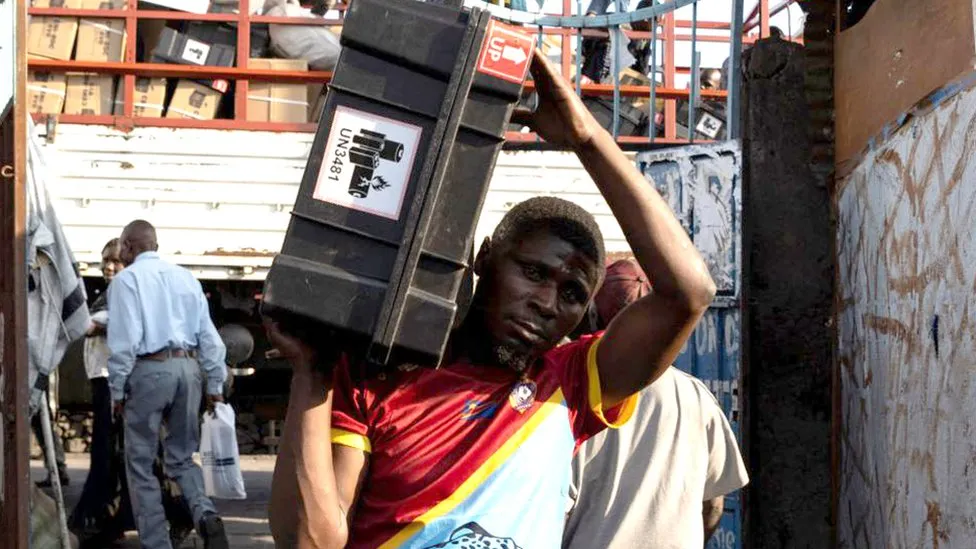On Wednesday, 44 million people will cast their votes to choose the next president of the Democratic Republic of Congo from a pool of 19 candidates, seemingly indicative of a thriving democracy. However, challenges such as insecurity and logistical issues in various regions paint a different picture.
The Democratic Republic of Congo boasts extensive cobalt reserves, a crucial component of many lithium batteries essential for a fossil fuel-free future. The outcome of this election could play a significant role in enhancing stability and ensuring the safe extraction of this valuable resource for the benefit of the Congolese people.
President Félix Tshisekedi seeks a second term, facing opposition from wealthy mining magnate Moïse Katumbi and former oil executive Martin Fayulu. Fayulu contends that he won the 2018 election, a result questioned by international observers.
The peaceful transfer of power after the 2018 election, a historic first for the country, generated optimism about a positive turning point in the Democratic Republic of Congo’s history.”
In this election, there is a single round of voting, and the candidate with the highest number of votes will emerge as the winner. The considerable number of challengers to Mr. Tshisekedi might work to his advantage, potentially dividing opposition support.
Voters are not only selecting the next president but also parliamentary, provincial, and municipal representatives, totaling approximately 100,000 candidates in this expansive country that spans about 2,000 km (1,400 miles) from west to east.
To facilitate the distribution of voting materials to over 175,000 polling booths, the electoral commission has sought assistance from UN peacekeepers.
In the lead-up to the polls, insecurity has been a predominant concern in the eastern regions. Numerous armed groups have vied for control over various parts of the region.
Voting suspended
Despite the presence of a UN peacekeeping force, an East African regional force, and Congolese soldiers, violence persists, leading to the displacement of approximately seven million people from their homes.
Many of these individuals have been unable to register to vote, with the registration process criticized as chaotic.
In certain areas, voting will not occur due to ongoing rebel activity. The enduring insecurity in the eastern provinces of Ituri, North Kivu, and South Kivu has become a prominent campaign issue, with presidential candidates making ambitious promises to bring an end to it.
The prevalence of political violence leading up to the polls has also raised significant concerns.
On the eve of the vote, the European Union said it was worried about “the hate speech, violence and incidents that have marked the last few days”. There have been some deadly incidents, causing Mr Katumbi to briefly suspend his campaign.
Polls opened at 06:00 local time (04:00 GMT in Goma; 05:00 GMT in Kinshasa) and voting is due to continue for 11 hours. The electoral commission is expected to announce provisional results on 31 December.

